State of the Home Care Sector Survey Results – 2024
CareLineLive’s comprehensive survey on the UK home care industry reveals a sector marked by challenges but also a sense of optimism post-pandemic despite the significant obstacles that home care providers are facing.
The survey highlights various critical areas of concern and opportunities for enhancement within the UK home care sector.
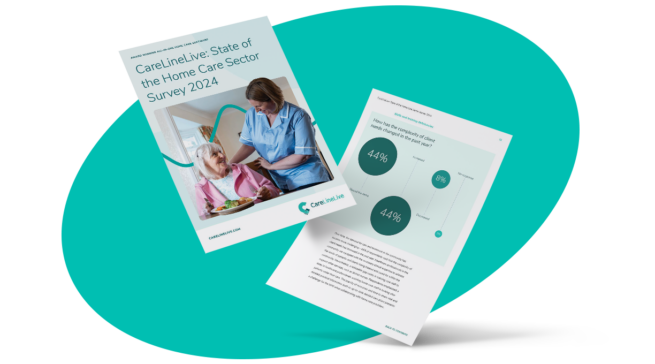
Key Findings
The survey highlights various critical areas of concern and opportunities for enhancement within the UK home care sector.
Click or scroll down for key findings:
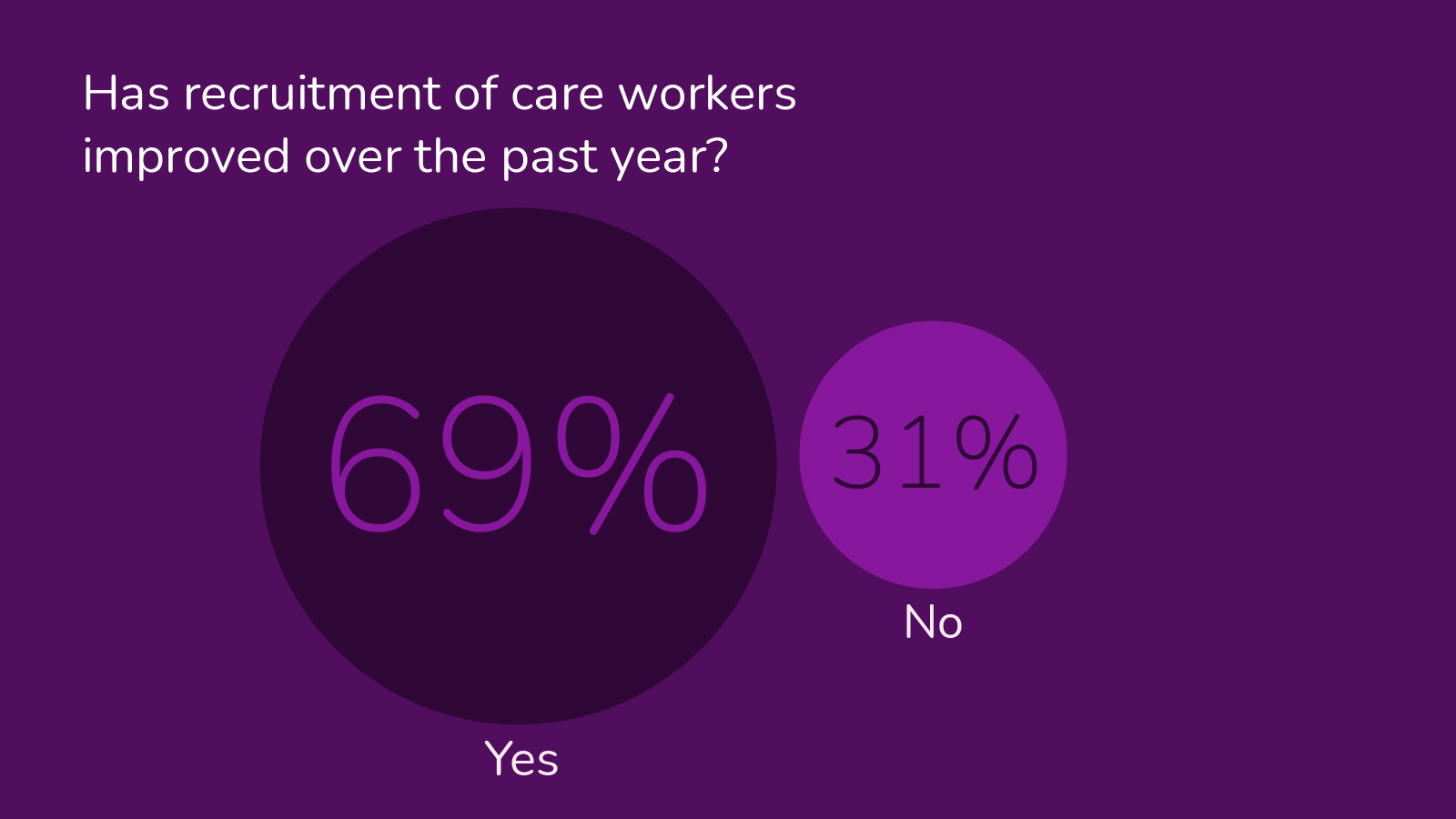
Recruiting, retaining and training
Recruiting, retaining and training individuals dedicated to the sector emerge as significant challenges.
The perception of carer workers as low-paid, unskilled workers has to change and they deserve social status as well as a career path that includes long-term personal development.
These issues are further compounded by frustrations regarding staff training for increasing numbers of service users with complex needs.
Additionally, there is a notable shortage of resources for upskilling care workers by other healthcare professionals, a practice that was previously common.
Funding
Funding poses a major challenge, affecting both the provision of high quality care and imposing financial strains on operational expenses.
Survey participants voiced substantial worries regarding the insufficiency of funds to cope with the rising need for specialised care.
This predicament loops back to the mounting costs across all services, as the continual surge in expenses further burdens these services.
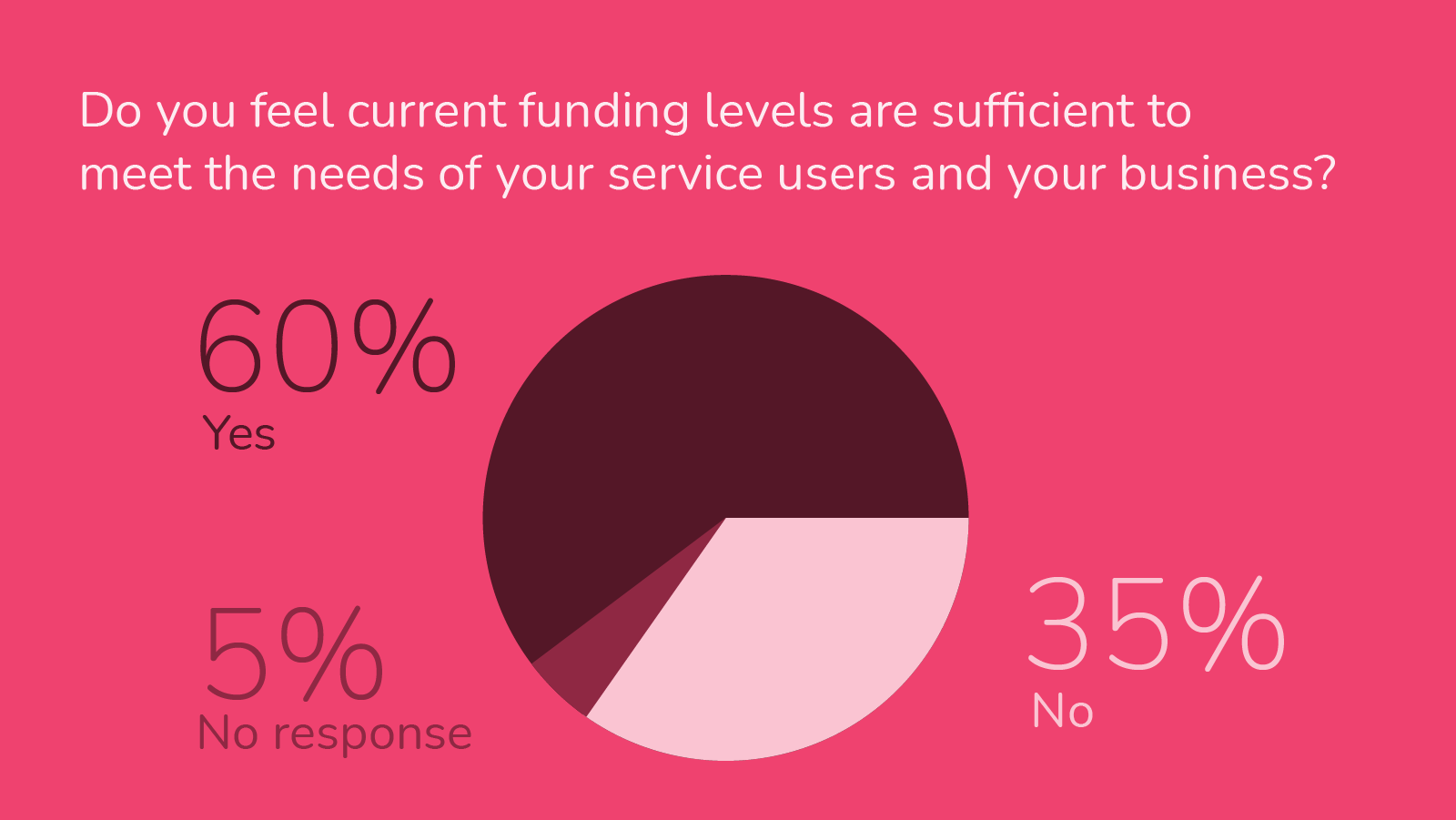
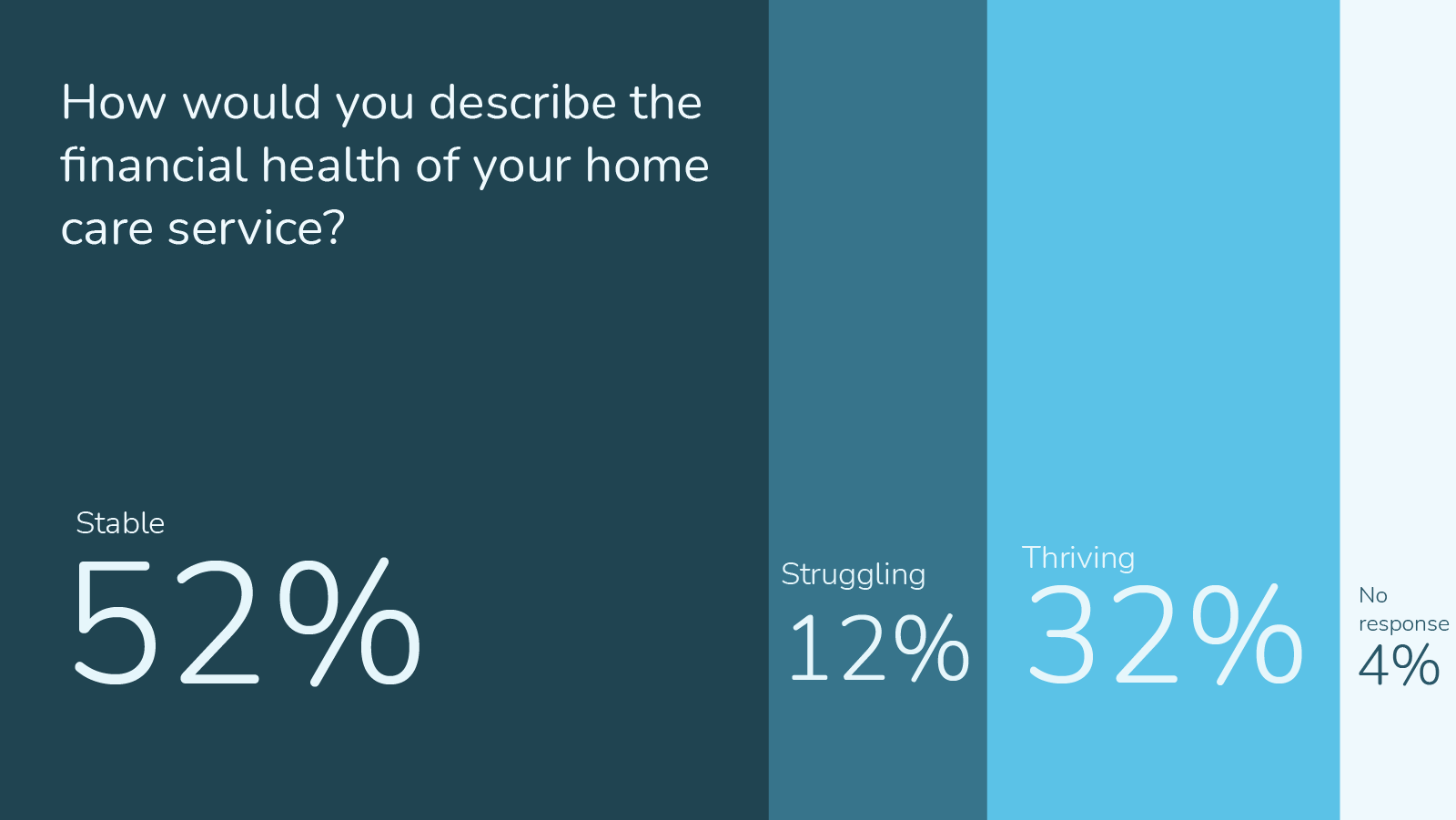
Business sustainability
Providers are deeply concerned about sustainability, focusing on the long-term viability of services.
Critical challenges revolve around sustaining a competent workforce in competitive job markets, adjusting to changing client preferences, and requirements in securing the longevity of funding models for home care services.
Climate change presents obstacles to infrastructure and service provision, while regulatory complexities can impede innovation within the home care industry.
Economic downturns and shifts in the sector further influence providers’ capacity to adjust efficiently.
Future concerns
Future concerns include the need for research and development being crucial for driving data-driven innovation in the sector to ensure sustainability.
There is a notable imbalance in supply and demand, with funding falling short of meeting increasing specialised care needs.
The slow integration of technology poses challenges, while concerns exist regarding workforce sustainability, funding models and regulatory burdens impacting long-term sustainability and innovation
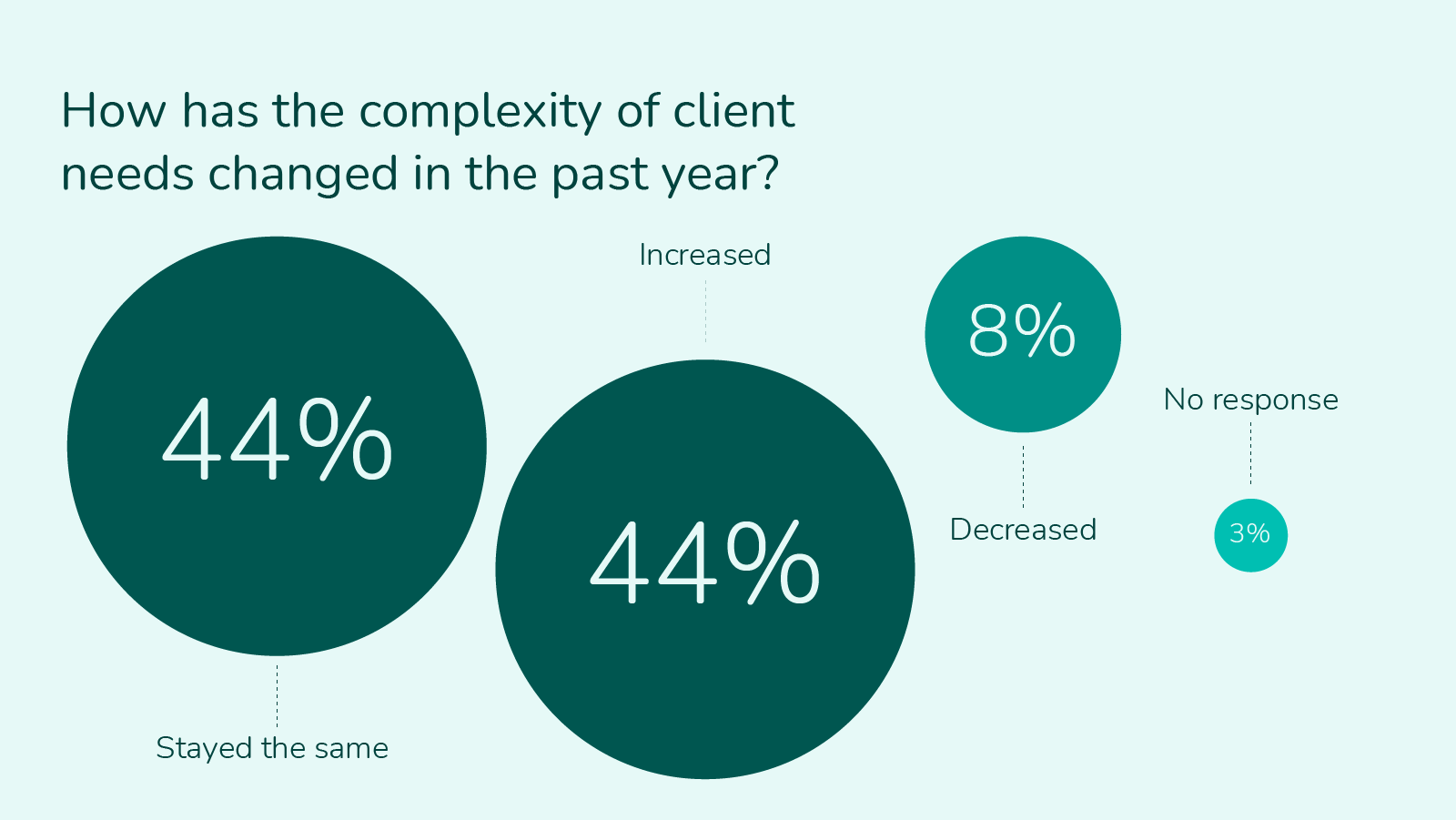
Surprise findings
Car ownership a key obstacle in recruitment

When asked about the main reasons with difficulties in recruiting and retaining staff the number one reason given was not low wages but the inability to drive and/or the necessity to own a car. 16% of respondents referenced this above the 12% citing low wages. 14% felt that negative perceptions of the job were also a major obstacle.
Discussions over the last year with other customers of CareLineLive have also indicated an increase in the numbers of carers who do not drive. This is compounded by challenges when service users live in more wealthy areas where carers are often not able to afford accommodation necessitating a lengthy drive, or trip by public transport to get to work.
Download a copy of the full survey report
You’ll learn about the survey methodology and the full findings which include views from the frontline on recruitment, retention, training, funding, business sustainability, financial pressures, impact of regulation, ideas for improvements in services, hope for the future of home care and more.
Complete the form below to download a detailed copy of the full survey report.